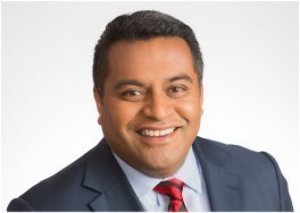
John Cliffe headed a group of other AFAs who wrote to the Financial Markets Authority chief executive, Reserve Bank governor, Commerce Minister Kris Faafoi and Finance Minister Grant Robertson.
They said all default funds needed to become balanced options, the IRD needed to be required to give default managers accurate tax rates for members and members should have to be switched out in 12 months.
The group also wants explicit identification and disclosure of conflicts to members. The letter said $1.5 billion of KiwiSaver funds were invested in securities issued by Australian-owned banks and insurance companies.
Cliffe said he was motivated to take action by the injustice of the situation.
It had been galling to see the Royal Commission of Inquiry’s findings of misconduct in the industry in Australia and then to have regulators say it was different in New Zealand.
“That’s not correct. They’re the same, exactly the same companies. They swap management.”
He said he had decided to take action independently of an association because Financial Advice NZ had been preoccupied at the time with the process of establishing the organisation.
“There’s a role for advisers to play in the market… there’s been a regulatory focus on advisers being poor… but we play a vital role. Who else will call people to account? There isn’t enough knowledge in government, not even enough int eh FMA at times, who’s going to step up? I see it as a very important role for the independent advisers to play.”
He had not yet received a response.
More advisers had been contacted than who signed the letter, he said. Some had been reluctant to put their names on the line.
It might not be the last letter from Cliffe and the group - there were other topics on the horizon that he thought deserved similar attention.
Cliffe said there was an assumption in the industry that KiwiSaver advice just meant getting a client’s risk profile and recommending an appropriate portfolio
“But there are a lot of assumptions that float around with standard investment recommendations. Many do not stand up to examination,” he said.
Cliffe said a common one was that investors should become more cautious as they approached retirement.
“The only long-term clients of mine that have raised that as a possibility has done so because they have seen that sort of recommendation in the media.
“At 65 most investors have got at least 15 years of life left, probably 20. They are used to the experiences in the fund type they have been invested in for the last X number of years. They are not planning to draw it all out at age 65, quite the reverse. Typically they draw a modest amount out regularly for the many years following. Making them conservative at retirement simply punishes both them and their children or beneficiaries.”
He said financial advice for investments was mostly about educating investors, or getting them to better understand a whole range of investment matters.
“For example what being an investor is, as opposed to a speculator, why popular retail investment strategies such as buy low and sell high, or picking winners in stocks, fund managers and asset classes typically fails, how important it is to understand what their likely experience is going to be, why proper diversification matters, why costs matter, why your goals as an investor and your discipline matter, why markets work, what risk really means and so on.
“But underpinning all that is where are they in their financial life and what is their best option now and the immediate years ahead. Typically fund managers or other large institutions try to boil plate down advice to a few basic steps. Likewise the regulators who have little understanding of what constitutes good financial advice. Understandable really as few have actual long term real experience dealing with clients and most simply want to promote sales – not advice.”
| « Fund manager research: Where to from here? | Mann on a mission to diversify financial advice » |
Special Offers
Sign In to add your comment

© Copyright 1997-2026 Tarawera Publishing Ltd. All Rights Reserved